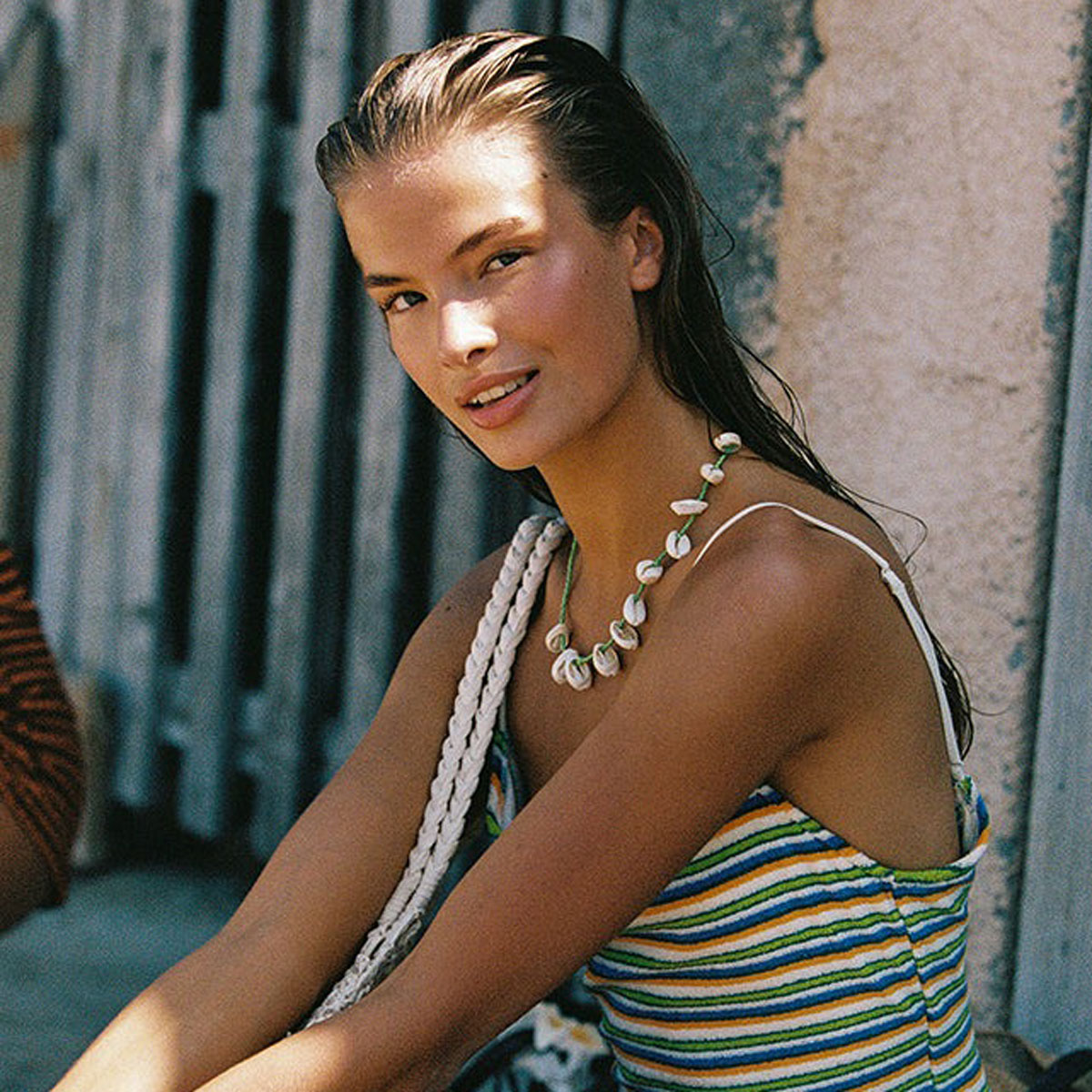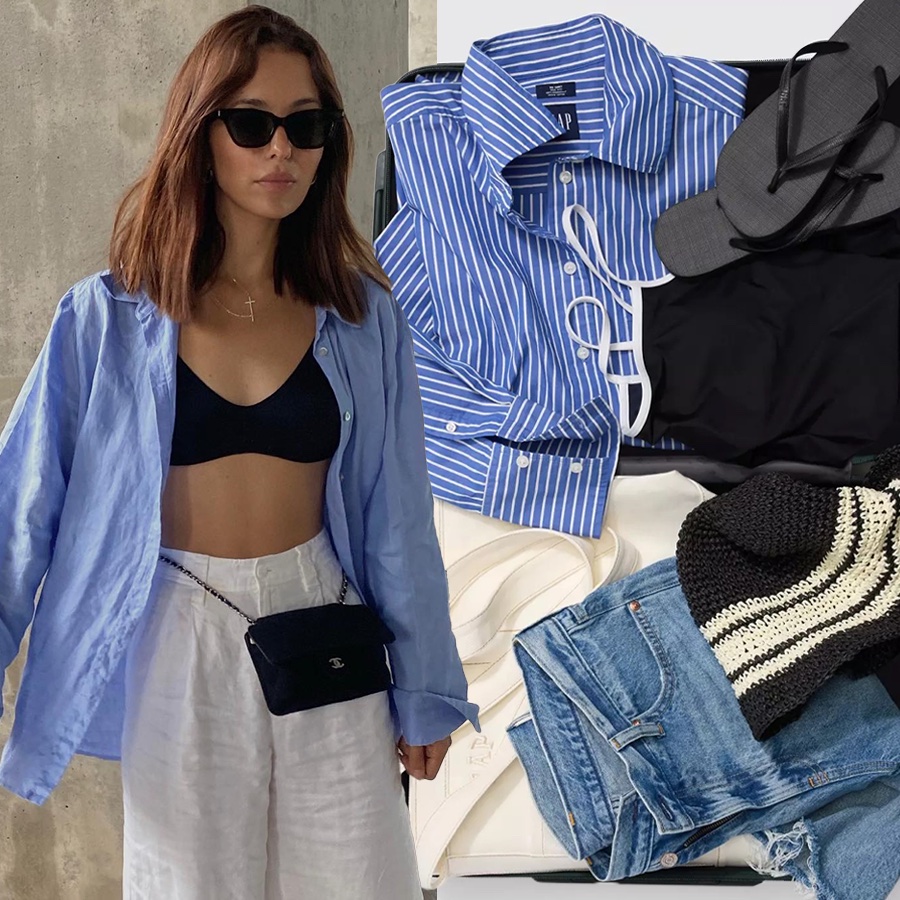Start The Year Off Right: Socially Conscious Fashion Brands To Know
In addition to these brands, you should check out the meticulously curated socially conscious shopping sites such as Olivia Wilde’s Conscious Commerce, Amber Valetta’s fashion site Master and Muse, Tom’s Marketplace (a division of the famous pay-it-forward shoe brand), and Jessica Alba’s home products at Honest Collective.
Manning purchases her materials, found worldwide, from only trusted suppliers who share her belief in both social and environmental sustainability. Each piece is handmade to order in her Berkeley, California studio by her in-house production staff.
The designers are based in Brooklyn and Oakland, and their garments are made in a family-run factory in New York’s fashion district. Items are produced to order, waste is responsibly donated to local schools, and they utilise vintage buttons, natural, sustainable materials, and a conscientious dyeing process.
Before starting the brand in 2007, Ethiopian model Liya Kebede was the World Health Organisation’s Goodwill Ambassador for Maternal, Newborn, and Child Health, so it came as little surprise when she decided to combine her philanthropic efforts with her impeccable taste. The brand, which has also collaborated with J. Crew, supports Ethiopian weavers and the communities they live in.
A part of the Tom’s Marketplace, each Fortuned Culture piece sold provides a service to someone in need. This bracelet provides six months of safe transport to and from school for a child in Mexico.
Marcia Patmos—previously one half of the celebrated design duo, Lutz and Patmos—creates her comfortable, colourful separates by collaborating with international artisan communities. She received the 2011 Lexus Eco-Challenge award for her environmentally friendly design practices.
Everything is made in the USA, and the garments are made with 100% organic cotton, sourced sustainably from seed to fabric. The seven-year-old brand also offers fantastic home goods.
The Istanbul-based sisters create hand-illustrated silk scarves that feature unique crocheted charms. Each charm is handmade in southeastern Turkey, in cooperation with a United Nations Development Plan project that aims to foster sustainable economic development of the region’s women.
Bono and Ali Hewson founded Edun in 2005 to promote trade in Africa by sourcing production throughout the continent, and the brand was so successful, the luxury conglomerate LVMH added Edun to their prestigious ranks (including Louis Vuitton, Marc Jacobs, and Givenchy) in 2009. Danielle Sherman, the brand’s new Creative Director, showed her first collection in New York during S/S 14 fashion week and we couldn’t be more excited for what is to come, if these sharp silhouettes and geometric patterns are any indication.
You know them for their classic, quirky frames and that they allow you to try on five pairs at home before purchasing, but did you know that for every pair sold, Warby Parker donates a pair of glasses to a person in need? As of this summer they have distributed 500,000 pairs through partnerships with non-profits like VisionSpring.
This fully sustainable and organic clothing company produces classic denim styles for men and women. They give 25% of their profits to groups worldwide that support community development and environmental protection.
Since 2010, this brand has established their own techniques, including the award-winning “Shag” process, to weave excess leathers into intricate patchworks and patterns. All aspects of the business are sustainable, but what we really love are the subtle odes to motorcycle history throughout their designs.
Carrie Parry strives to inspire and implement a symbiotic relationship between social, environmental, and economic practices. The site also has a Textile Education Series, which is brimming with facts. For example, if you donate old towels to a Salvation Army, they will send them to textile recycling facilities for you, thus eliminating your textile contribution to landfills. (A staggering 5.2% of landfill is attributed to textile waste each year).
The Manhattan-based Maiyet team sources from local artisans around the world, but also celebrates the craftsmen by forging ongoing relationships that last for seasons. They also provide customised training programs to their partners, thus enhancing the quality of the products, and in turn, promoting stability and sustainability in those communities.
Launched in 2010 by Daniel Silverstein (and since re-launched in his name), the brand melds his distinctive aesthetic with his zero waste draping techniques, sustainable fabrics, and natural dyes.
The New York-based brand, helmed by two anonymous veterans of high fashion design and photography, partners with various international artisans to source embroidery from Africa and textiles from India. The consumer can choose from the online boutique customise their garments in collaboration with craftsman from across the globe.
















